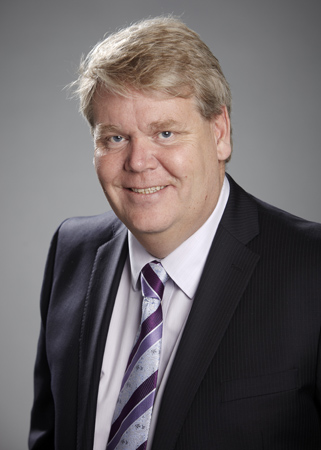Technology
Sony Ericsson, China Mobile to develop 4G phones
Updated: 2011-07-06 10:59
By Shen Jingting (China Daily)
|
 |
|
Bert Nordberg, president and chief executive officer of Sony Ericsson Mobile Communications AB |
Bert Nordberg, president and chief executive officer of Sony Ericsson Mobile, said the company hopes to work on the time division long-term evolution (TD-LTE) technology, which is going global.
Operators in Japan, India and the United States have already adopted the technology.
"It will be beneficial to work closely with partners in China to develop (the TD-LTE handset), and then we will have the opportunity to export it to other markets," said Nordberg in an exclusive interview with China Daily in Beijing.
He also said Sony Ericsson plans to bring the first LTE mobile phone to the market in 2012, when it is expected that 4G chipsets will become more cost-competitive.
The TD-LTE devices are likely to be developed in a new research and development (R&D) center in Beijing, according to Magnus Ahlqvist, president of Sony Ericsson China.
The company officially set up the global R&D center and an operations center in Beijing on Monday, in the hope of increasing its presence in the world's biggest mobile phone market.
|
||||
"The Chinese market plays a critical role for Sony Ericsson," said Nordberg, as more than 95 percent of handsets that the company sold last year were made in China.
China's market offers huge growth potential for smartphone consumption. The research firm Gartner Inc estimated that more than 40 percent of handsets sold in China in 2015 could be smartphones.
"China has the world's biggest mobile phone user population of 900 million, but the number of smartphone users is still small," Nordberg said. In the past two years, the country experienced a rapid increase in 3G and smartphone users.
As Sony Ericsson wants to become the world's top supplier of Android-based mobile phones, the company must be the leader in China to achieve its goal, Nordberg added.
Sony Ericsson claims to be the third-largest vendor of Android-based smartphones in the mainland and the second-largest Android phone supplier in Taiwan and Hong Kong.
According to a report from Beijing-based research firm Analysys International, Sony Ericsson sold 1.38 million smartphones in China in the first quarter, accounting for 6.9 percent of the smartphone market.
"Sony Ericsson has a relatively small role in China's mobile phone market," said Lu Libin, a telecom analyst with Analysys International.
Sony Ericsson's sales in China lag international rivals such as Apple Inc, Motorola Mobility Holdings Inc and Samsung Electronics Co Ltd, Lu said.
However, the company has an advantage in attracting young, trendy consumers by capitalizing on the entertainment technologies of parent Sony Corp, Lu added.
Sandy Shen, an analyst at Gartner, said Sony Ericsson is good at making mobile phones with strong entertainment offerings, which distinguishes the company from other Android phone producers.
"The company has a limited target market, primarily students," Shen said. She also noted that Sony Ericsson's distribution channels in China are limited, making it difficult to find its products outside of first- and second-tier cities.
Sony Ericsson, a 50-50 Japanese/Swedish venture, was profitable for five consecutive quarters after losing 1 billion euros ($1.3 billion) in 2009. The company shifted its strategy to Android-based smartphones two years ago and has seen the decision begin to pay off.
Nordberg said Sony Ericsson has seen its smartphone business boom, but its feature phone segment faces tough competition.
"I start every day like I was selling fresh fish. If your fish is not fresh, people don't like it. It gets rotten very quickly," Nordberg joked, saying that the mobile phone industry is undergoing rapid change and Sony Ericsson must respond to market demand quickly.
Sony Ericsson sold 8.1 million mobile phones in the first quarter, down 23 percent year-on-year.
Smartphones accounted for more than 60 percent of its sales during the quarter and the average retail price rose 5 percent.
E-paper

Shining through
Chinese fireworks overcome cloudy times, pin hopes on burgeoning domestic demand
Pen mightier than the sword
Stroke of luck
Romance by the sea
Specials

90th anniversary of the CPC
The Party has been leading the country and people to prosperity.

My China story
Foreign readers are invited to share your China stories.

Green makeover
Cleanup of Xi'an wasteland pays off for ancient city




